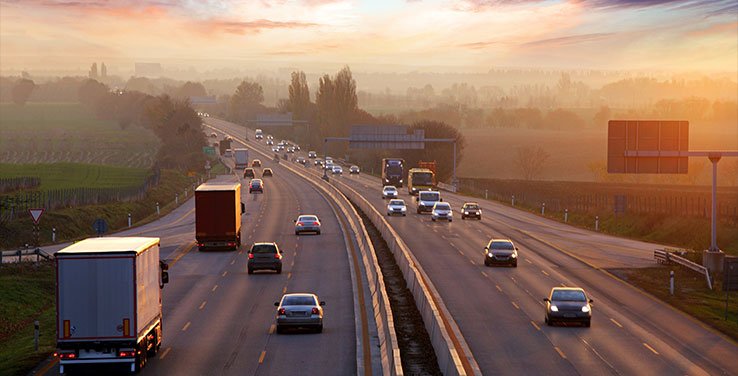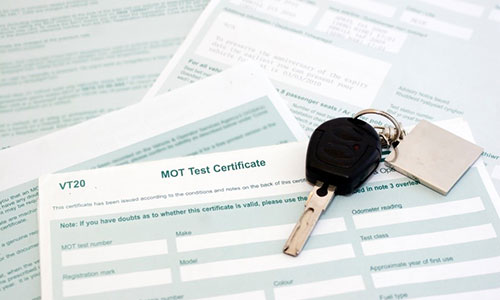
The Ultimate Frugal Driving Guide
Last updated August 10, 2021
Saving money in todays economic climate can be a challenge for many people in the UK. With countless bills and commodities to pay for each month, it’s hardly surprising that so many of us struggle to put money into savings.
Whether you’re looking to save up enough money to get on the property ladder, or simply want to reduce your monthly outgoings, there’s plenty of money that can be saved by car owners by simply making changes to the way you buy, drive and maintain your vehicles.
In this comprehensive guide, we’ll break down into easy to understand sections the different areas that you can look to save money in, potentially saving you hundreds of pounds each month in the process!
Value your car in under 30 seconds

Part 1: Hypermiling
Making some changes to the way you drive your car can really pay off over the months, not only by reducing petrol costs, but generally reducing wear and tear on your vehicle by putting it under less stress.
Hypermiling is a term given to the art of driving in the most fuel-efficient way possible, reducing the amount of fuel your car consumes and ultimately saving you money. From driving techniques to preparations you can make in advance, hypermiling combines a range of fuel-conscious strategies which can help you reduce your monthly fuel costs.
By using these fuel-efficient tips below, you can start saving money straight away!
Preparation & Maintenance
Car’s that are not properly maintained can cause much more pollution than necessary, and become much less fuel efficient as a side effect. By ensuring your car is regularly tuned and inspected is a great first step to ensuring your car remains as fuel-efficient as possible.
Seeing as they are the only part of a car that touches the road, tyres play a large part in effective hypermiling. Poorly maintained tyres can considerably decrease fuel-efficiency over time. Ensure your wheels are properly aligned and balanced; also make sure that your tyres remain at the correct pressure.
Extra tweaks such as using synthetic or lightweight oil and high-performance spark plugs can further increase fuel-efficiency as well as the overall performance of your car. Be sure to check manufacturer recommendations before making these tweaks however.
Lowering the Weight
The more weight your vehicle has to carry, the more fuel it will use while driving, so identifying and removing any deadweight is another great way to cut down fuel consumption.
Removing heavy items from your boot such as toolboxes or suitcases, as well as car accessories like roof racks or baby seats until they are needed all help lower the weight and ultimately allows for a much more fuel-efficient journey. Be sure to review the contents of your car and remove any non-essential items and accessories before your next trip.
As an extra note, while it does not technically count as ‘extra weight’, your car will suffer from ‘drag’ if you drive with the windows or sunroof open, especially at higher speeds. Be sure to close all windows before heading onto the motorway to reduce drag and improve efficiency.
Driving Techniques
Now that you’ve primed your vehicle to be more economical, you can make a few changes to the way you drive on the road to help save fuel and money in the long-term.
General driving techniques such as using higher gears at lower speeds (for example, using 4th gear at 30mph) can have an immediate impact on the amount of fuel you are saving. Refraining from over-revving the engine and learning to use gears efficiently could save you up to 15% on your fuel bill alone. You can find more information on fuel-conscious driving in this short and handy list of tips.
Refrain from over-using your car’s air conditioning. Unless the weather is uncomfortably hot (a rare occurrence in the UK!). The car’s regular fans are usually sufficient, without the need for gas-guzzling air conditioning.
Long Journeys
Long motorway journeys can often feel like a drag, encouraging some drivers to travel at higher speeds to shorten the trip; however the faster you drive on the motorway, the more fuel you will use in the process.
For example, travelling at 80mph on the motorway uses 10% - 20% more fuel than travelling at 70mph, as well as being illegal! Similarly, travelling at 70mph uses 20% - 30% more fuel than travelling at 50mph, a huge difference, especially for those who use the motorway as part of their daily commute.
Be sure to drive at lower speeds whenever possible. Travelling at 50 – 60mph may seem like a bit of a drag, but the savings you could make over the year are more than worth it!
Short Journeys
Driving economically on long motorway journeys is fairly simple; however hypermiling in urban areas can present more of a challenge. Routes which result in a lot of ‘stopping and starting’ will inevitably use more fuel, so opting for a route which is generally quieter is a great start. If leaving a little earlier will help you dodge the morning rush, it may be a worthwhile trade-off.
If you find yourself stuck in traffic, switch off your engine. While more modern vehicles feature automatic stop-start systems which will save fuel, owners of slightly older cars would benefit from getting into the habit of switching off their engines when sat in traffic for prolonged periods.
Less Braking
Over-using your car’s breaks can cost you more petrol by the end of a journey. While brakes are there to slow and stop your car, it’s not always necessary to use them. A key part of effective hypermiling is learning to drive safely whilst braking less.
For example, instead of rushing to each junction or red light, taking extra time to approach can prevent you from having to stop, saving you the extra fuel it would have taken to set off again from a stationary position. By getting into the habit of rolling to a stop or slowing before you reach a junction, you will find that your fuel goes a little further on every journey!

Part 2: Expenses
As all car owners will know, there are plenty of additional expenses that come as a result of car ownership. From the price of initially buying a car to the cost of annual insurance and tax renewals, owning a car can be an expensive luxury to say the least.
Fuel Costs
A popular conversational topic in the UK (albeit not overly-interesting!) is the cost of fuel. Fuel prices in the UK differ from station to station, and region to region, meaning there’s plenty of money to be saved by savvy shoppers.
One of the best ways to locate the lowest prices near you is by downloading a smartphone app such as Petrol Prices (available for iPhone & Android). Using this apps you can locate the best fuel prices near you by simply entering your postcode, saving you the hassle (and fuel) of shopping around yourself!
Insurance
Car insurance prices have been on the rise in the UK for quite some time. Unless you’ve been driving for several years and have built up a substantial ‘no claims’ discount, it’s likely you’re unhappy with the amount you are paying for car insurance.
As with fuel prices, insurance quotes differ between providers, so it’s worth shopping around before renewing your existing policy. Price comparison sites such as Compare the Market allow users to input their details and get insurance quotes from tonnes of insurance providers, allowing you to get the best price. It’s worth noting that not all major car insurance providers are listed on price comparison sites, so it’s still worth shopping around outside of these sites before making a decision.
By making additional tweaks such as increasing your ‘voluntary excess’, skipping extras such as windscreen or legal expense cover, and stating a lower annual mileage than the 10,000 miles per year average (if your annual mileage is genuinely lower), you can lower the cost of your next insurance premium even further.
On the Move
There are plenty of extra costs that can occur throughout the year when owning a car. From parking fees to airport costs, it can be all too easy to let those precious extra pounds slip through your fingers.
Parking can be very expensive, especially in busy city centres or and airport car parks. When it comes to reducing the amount you spend on parking throughout the year, planning where you’re going to park in advance is always a good idea. Take some time to check for car parks around your destination; apps such as Parkopedia will help find the cheapest deals in your area. If parking a little further away means you save £10 on parking charges, it may be worth a little extra walking!
Those who work in busy city centres are often forced to find a nearby carpark to park in, paying out a hefty chunk of their salary just for the luxury of being able to drive to work. If there really isn’t a cheaper alternative to driving to work, you may wish to invest in an annual parking pass. While these do cost a few hundred pounds initially, it could save you money over the year when compared to daily ‘pay & display’ costs.
Similarly, when using airport parking, shop around in advance to find the best price. While on-site airport car parks are certainly convenient, there are usually external airport car parks within a few miles that offer a shuttle service. That extra 20minutes on your journey could save you a lot of money.

Part 3: Maintenance
Car maintenance and repair costs can be frustrating and expensive, especially when they pop up at the worst possible moment. While the vast majority of us are not certified mechanics, we can certainly look to save some money on mechanic bills by properly maintaining our car over the years.
Keeping Up Appearances
Driving a clean and shiny car is a great feeling, especially on those enjoyable summer trips. However keeping your car looking great over the space of a year can be an expensive luxury if you regularly pay out for car wash or valet services.
While a basic valet service isn’t exactly going to break the bank (often priced around £10-£15), paying out for a clean and vacuum once a fortnight can cost well over £250 in a year, and that’s just for the most basic of services on a standard-sized vehicle. More comprehensive services such as waxing and polishing can cost over £50 per clean, taking an annual spend at a rate of two cleans a month to a whopping £1,200 a year!
By washing and vacuuming your car yourself, you can stash that extra spend into savings. Avoid pushing up your water bill by using water-guzzling appliances such as jet washers; instead, opt for the bucket and sponge and give your car a thorough scrubbing the old fashioned way to double savings!
Minor Repairs
Not all fixes require a trip to the garage. Simple fixes such as changing a tyre, replacing a windscreen wiper or topping up oil are very straightforward, and can be done at home with sufficient care and attention.
Try to reserve visits to the mechanic purely for essential repairs, this will save you paying extra money for labour costs as well as the materials to fix your car. Be sure to visit our new Car Maintenance Guides and Tips section for video tutorials on a range of simple car repairs you can do at home!
Reduce Wear & Tear
By driving your car aggressively, your vehicle will inevitably suffer gradual damage over time, resulting in increased rates of wear and tear on the several working parts of the car.
By driving at a steadier pace, braking sooner and setting off without spinning the car’s wheels, you will reduce the rate at which your tyres wear down. This will get you much more use from each tyre, delaying the need to replace them.
Similarly, by being gentler when changing gears and gearing upwards sooner, you’ll reduce stress on your gearbox and can delay or even completely avoid the need to replace an expensive area of your car.

Part 4: Downsizing
Now comes the part that may be hard for a lot of car owners to hear. It may not be your idea of a good time, but if you spend a large chunk of your paycheque each month paying off a luxurious vehicle, it is likely that your potential monthly savings are seriously suffering because of it.
Not only is the immediate monthly cost of the car preventing you from maximising your savings, but the higher insurance premiums that come with owning a more expensive car are also cutting into your savings. While you may be attached to your luxurious motor, it’s always worth taking a moment to consider how much your car is costing you overall, including loan/finance payments, insurance premiums and higher rate of fuel consumption.
Clearing Finance
Selling your current car and clearing its outstanding finance could be a great way to save a considerable amount of extra money each month. With monthly payments on luxury vehicles often exceeding £300 per month (and far beyond in some cases), clearing that debt could help you save an extra £3,600 over a year.
By downsizing to a car that requires much lower monthly payments, or even buying a smaller used car outright, your monthly repayments will either be greatly reduced or eliminated altogether.
Lower Premiums
With smaller, less expensive cars also come lower insurance premiums! While there are many factors which contribute to your overall annual insurance quotes, driving a car that is less valuable and has a smaller engine will inevitably lower the cost of car insurance.
To ensure your insurance costs stay low, be sure to couple your downsizing with a habit of safe and careful driving to ensure your behaviour doesn’t cost you a fine, penalty points and ultimately, increased premiums.
Costs stay low, be sure to couple your downsizing with a habit of safe and careful driving to ensure your behaviour doesn’t cost you a fine, penalty points and ultimately, increased premiums.
Lower Fuel Consumption
Cars with smaller engines also require less fuel to run. Vehicles such as a typical 4x4 or executive cars with large 3.0-litre engines (or more!) can cost owners hundreds of pounds in fuel each month, especially when used for lengthy workplace commutes each day.
Downsizing to a vehicle with a smaller engine will dramatically reduce the monthly spend on petrol, allowing you to stash away that extra cash for something much more beneficial. Smaller cars are significantly lighter than gas-guzzling trucks and 4x4's, as well as exerting less energy under the bonnet, meaning a full tank of gas will likely cost you a lot less, and get you a lot further too! New generations of 'city car' such as the Smart Car, Peugeot 107 and Citroen C1 are all fantastic examples of fuel-efficient city cars that could save you hundreds in fuel costs each year.

Part 5: Alternatives to Driving
This is by far the most radical change you can make to your driving habits, but is also likely to save you the most amount of money each month: consider not driving at all.
While many people couldn’t function in their daily lives without the use of their car, there are many drivers on UK roads who own a car purely for convenience and not for necessity. If you really couldn’t give up driving because of your daily commitments and commutes, there are plenty of money saving tips above; however, if you think you could break free from the costly constraints of driving then read on!
Public Transport
Public transport often gets a lot of bad press, especially in local newspapers and news networks. However, while trains, trams and busses do run late from time to time, overall they are considerably cheaper than the cost of running a car.
With the average cost of owning a car said to be around £550 per month compared to a rough cost of £120 per month for a train or bus pass, public transport often works out considerably cheaper. Find out how much you could save by visiting a vendor such as Trainline for an instant quote on a season ticket.
On Your Bike
Using a bike to reduce (or even replace) your car usage will greatly reduce your travel costs, as well as boosting your fitness levels! Cycling is one of the best cardiovascular exercises you can do, so biking to and from work several times a week is fantastic for your health as well as your bank balance.
Before you rush out to buy a new bike, be sure to check if your employer is one of the thousands of companies in the UK are now registered with the 'Cycle to Work Scheme' . This government initiative allows you to purchase a brand new bike, tax-free and spread the cost over several payments.
Car Sharing
Splitting the cost of a journey is another effective way of reducing travel expenses, especially if you are able to arrange a regular lift for your daily commute. The easiest way to arrange this would be to discuss car sharing with co-workers, send out a mass email to other staff at your office, or even put up a notice in the canteen.
Another handy way to find a well-matched car share would be to use a trusted car share site such as Liftshare.com. By sharing a ride with other drivers who take a similar route to yours, you can cut the cost of each journey and even make new friends along the way! You can find out how much you could save with car sharing by using the Liftshare savings calculator.





